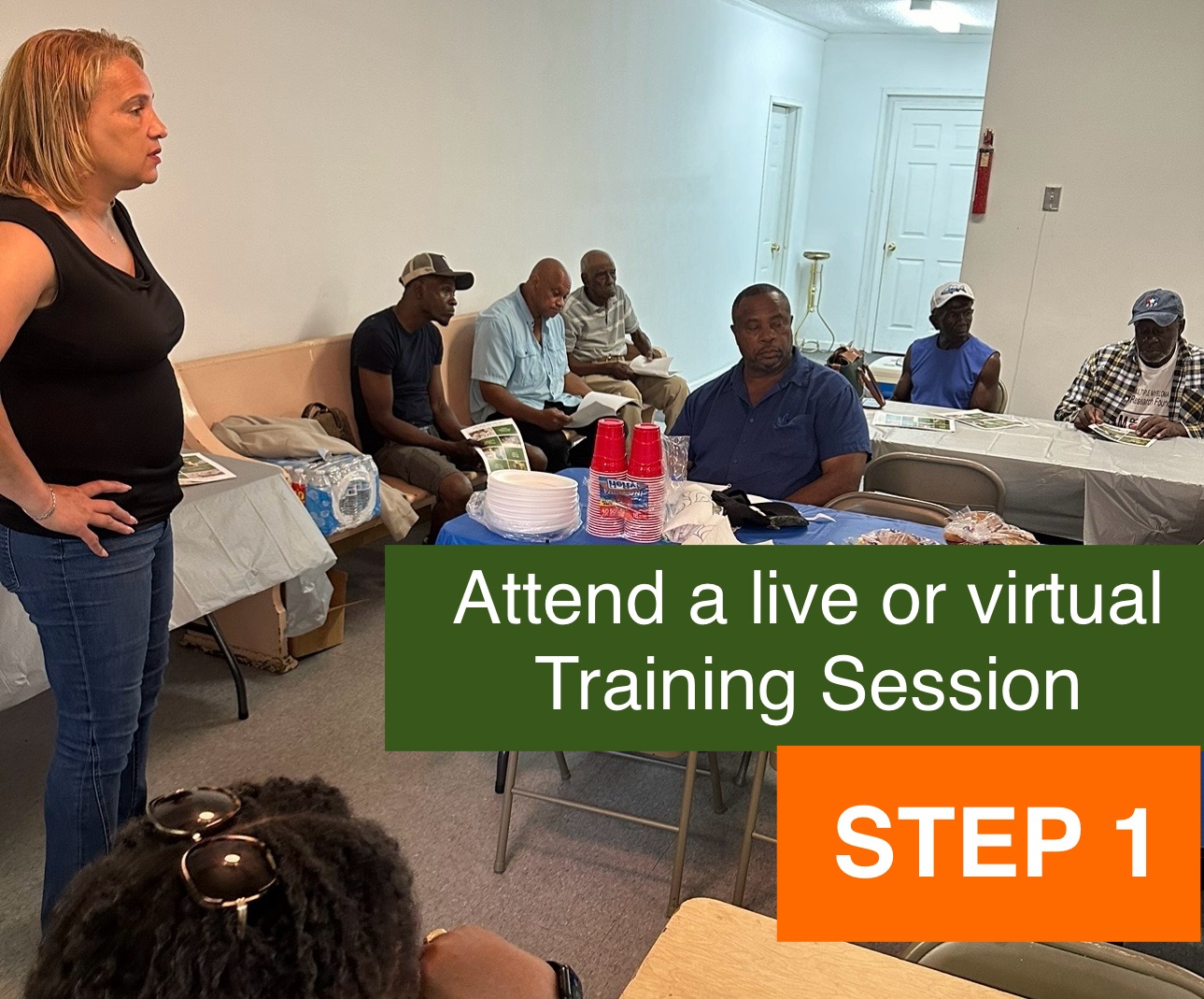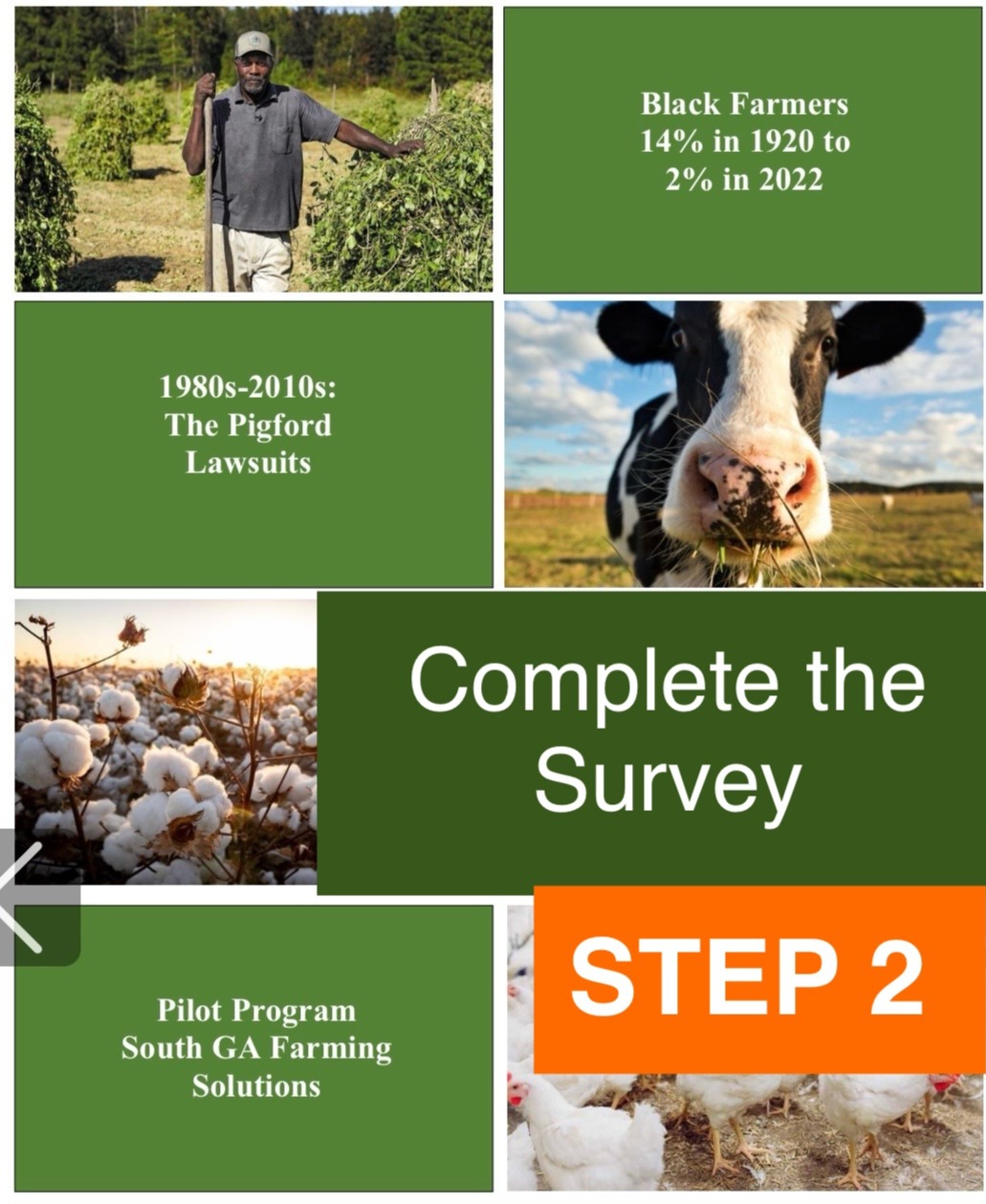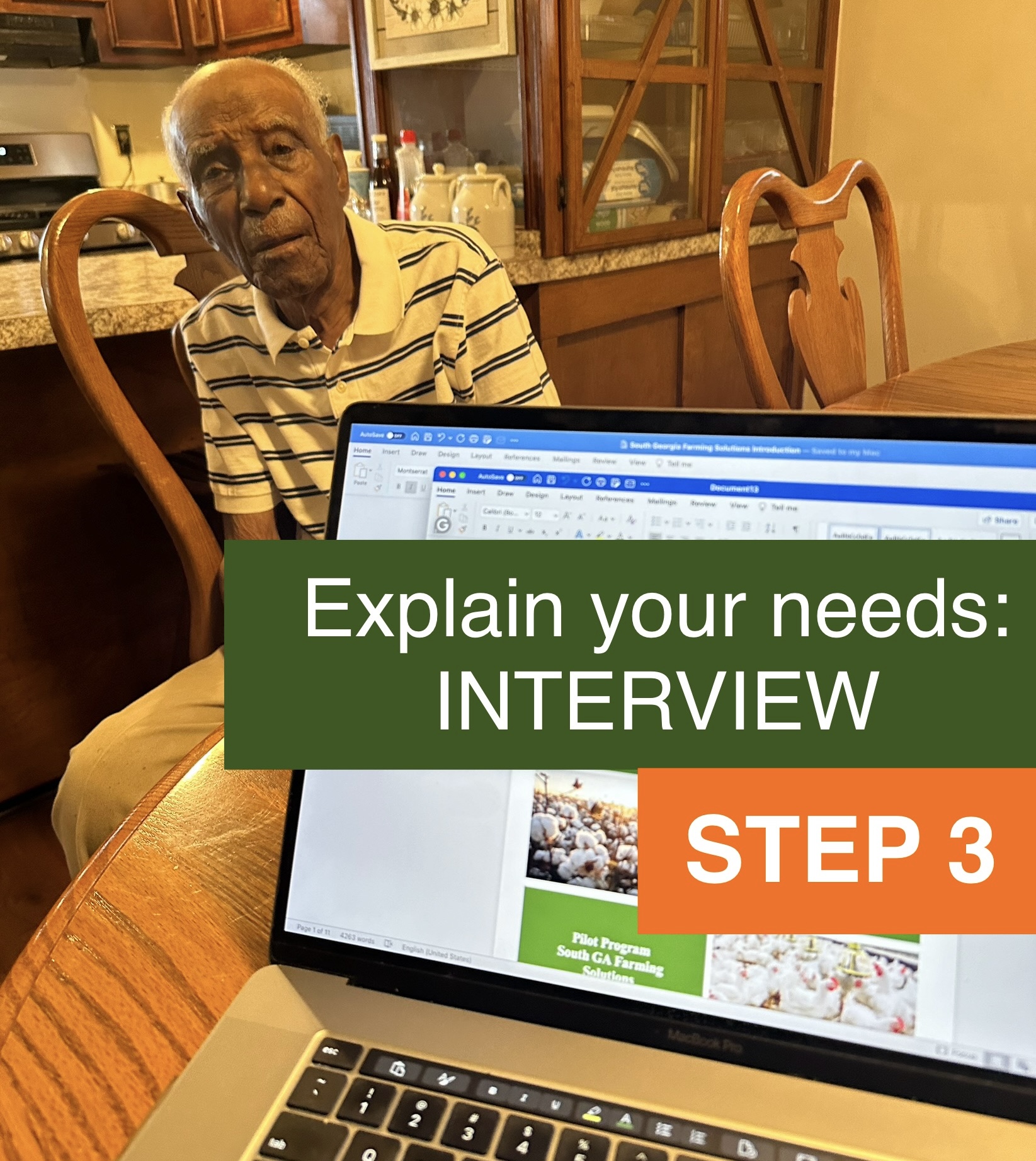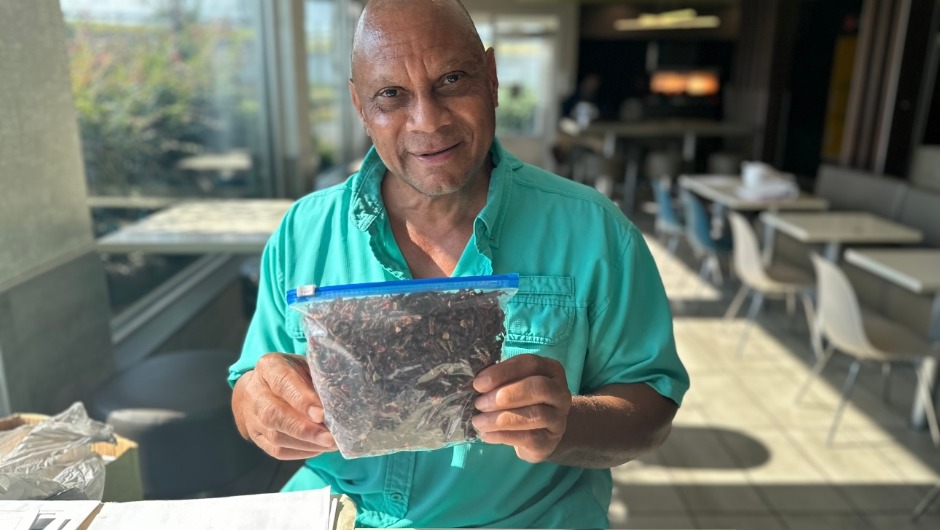Welcome to South Georgia Farming Solutions




Plan to attend an informative meeting about local farming struggles and solutions.
If you feel your farm and family could benefit by receiving support then complete the survey.
Schedule a visit and interview. This is where we discover your farm's financial needs.
Become a member! We will begin searching for grants, loans and gifts-in-kind to support your future and success.
Join Our 2024 Pilot Program Today!
The South Georgia Farminis Solutions is a pilot program designed to meet the needs of 100 struggling farmers in South Georgia. It will first conduct a survey to find the most effective programs, services, equipment, funding, and support needed to help farmers gain equal footing as farmers in more pleasurable circumstances. Once the survey is completed, the next step will be to enroll interested farmers in our South Georgia Farming Solutions Program, offering them one-on-one administrative support for effective farming. Next, those farmers will be personally interviewed and offered solutions to their current farming obstacles. Some obstacles to address while supporting minority farmers and helping them thrive despite facing discriminatory tactics involve a multifaceted approach. Key components include:
Access to Funding and Grants:
- Government Grants and Loans: Ensure minority farmers have equitable access to federal and state agricultural grants and loans.
- Private Sector Support: Encourage private banks and financial institutions to create special funding programs for minority farmers.
Technical Assistance and Education:
- Training Programs: Offer workshops and training sessions on modern farming techniques, sustainable practices, and business management.
- Extension Services: Provide access to agricultural extension services that offer hands-on support and advice.
Legal and Advocacy Support:
- Legal Aid: Provide legal assistance to help farmers navigate discriminatory practices and land ownership issues.
- Advocacy Organizations: Support groups that advocate for the rights of minority farmers and lobby for policy changes.
Access to Land:
- Land Grants and Subsidies: Create programs to assist minority farmers in acquiring land.
- Land Trusts: Establish land trusts that prioritize minority farmers.
Market Access and Development:
- Cooperatives: Encourage the formation of cooperatives to help minority farmers pool resources, share knowledge, and access larger markets.
- Local Markets: Develop local farmers' markets and supply chains that prioritize produce from minority farmers.
Community Building and Networking:
- Mentorship Programs: Establish mentorship networks connecting experienced farmers with new or struggling minority farmers.
- Community Organizations: Strengthen community organizations that provide support and resources to minority farmers.
Policy and Institutional Change:
- Anti-Discrimination Policies: Advocate for and enforce policies that prevent discrimination in agricultural programs and services.
- Inclusive Decision-Making: Ensure minority farmers have a seat at the table in agricultural policy and decision-making processes.
Research and Data Collection:
- Research Grants: Fund research on issues specifically affecting minority farmers.
- Data Collection: Collect and analyze data on the challenges and successes of minority farmers to inform policy and support programs.
Access to Technology:
- Digital Tools: Provide access to and training on digital tools and technologies that can improve farming efficiency and market access.
- Innovation Grants: Offer grants for adopting innovative agricultural technologies.
Mental Health and Wellbeing Support:
- Counseling Services: Provide access to mental health resources and counseling services to support the overall well-being of minority farmers.
- Community Support Groups: Establish support groups to address the unique challenges faced by minority farmers.
Our goal is to create other funding opportunities to these farmers through grants and gifts-in-kind of at least $100,000 per farmer per year depending on their budget needs some farmers will be assisted with more than $100,000. By addressing these key components, minority farmers can be better equipped to overcome discriminatory practices and achieve sustainable success in their agricultural endeavors, and create generational wealth!
Suggested Farming Needs Document
This document is given to each farmer that wants to participate in our pilot program. The farmer will read the suggested mode of help and select what they think is best for their farm.
Farmer Survey Specifically for their farm
This survey is given to each farmer who desires to be selected for our pilot program. The farmer would complete the survey and either turn it in at the training site or email it to our staff at: survey@anitalaneministries.org
100 Farmers + $100,000 each + Vision
Your dedication and relentless hard work are the backbone of our communities. We see your early mornings, your hands in the soil, and your unwavering commitment to feeding our nation. We believe in your potential and want to support your growth. With a $100,000 opportunity, we aim to provide you with the resources to expand your farm, adopt innovative practices, and achieve new heights of success. Together, we can cultivate a brighter future for agriculture. Let's sow the seeds of progress and watch them flourish. Your dreams are within reach, and we're here to help you achieve them
Together, let's even the playing field and create a future for minority farmers!
THE USDA CONTINUES TO FAIL US
Click on the link below to educate yourself about how the USDA has failed minority farmers.
OUR RECENT WORK
EXPOSING FORMS OF FARMING SLAVERY
In a recent interview with John Boyd, Jr. who is a 4th generation farmer, truths about the USDA's history of farming abuse and discrimination begin to unfold.
Black Farmers waited 380 days to process a loan
White Farmers waited 28 days for a loan
20 million loans were given to Black Farmers,
but 5 1/2 billion was given to white farmers in the same time frame.
This is an example of race-based discrimination...learn more
CREATING A SUSTAINABLE CONSUMER
Connecting struggling farms with city consumers who need fresh produce creates a mutually beneficial relationship. Farmers gain a stable market for their goods, boosting their income and sustainability, while urban consumers receive access to fresh, locally-grown produce, enhancing their health and well-being.
This connection fosters community ties, reduces food miles, and supports local economies, promoting a more resilient and sustainable food system for everyone involved.

FARMING HIBISCUS
Mr. Stinson from Rochelle, Georgia farms Hibiscus and oh boy does he have a story to tell! We met in Vienna Georgia and he gave me a full introduction of his passion for extracting byproducts from his hibiscus plants.
Farming looks different through the eyes of creative people. Some find wealth in hydroponic fields, while others can generate the same wealth by strategic planning and developing virgin extract and still make well over a quarter of a million dollars. These are the types of innovation that we can support and in turn, teach others how to do the same!
Lets Talk!
We're here to help
ALM is a non-profit organization that exists to empower people through Human Rights and Civil rights efforts. Our 30 years of successful programs and services speak for themselves and
our honor and duty is to serve.
